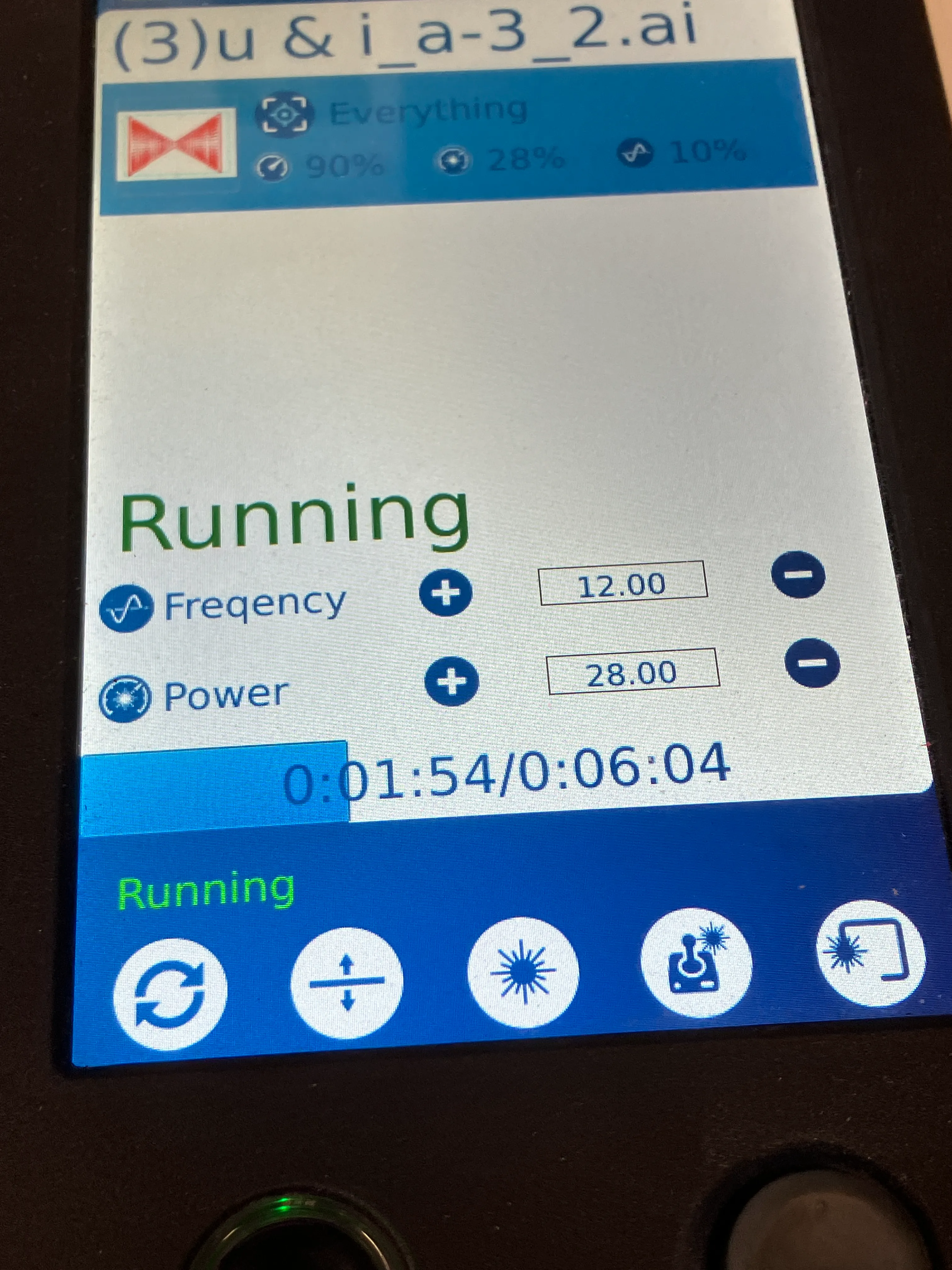ask:
Laser Cut two of the same thing One must be small One must be big at least 6in (160mm) x 6in (160mm) Must use joining Must use two different materials Document on your blog
output:
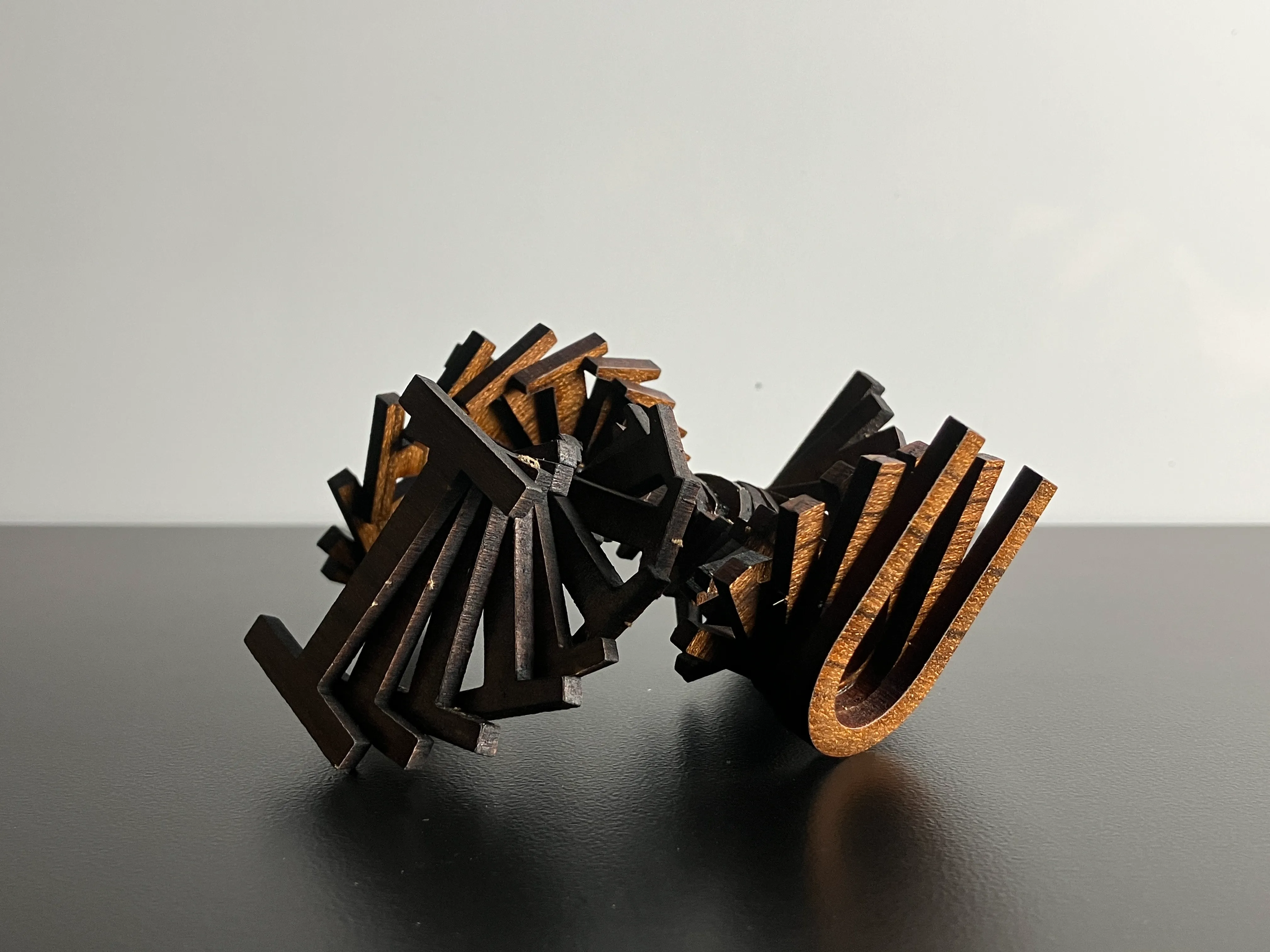
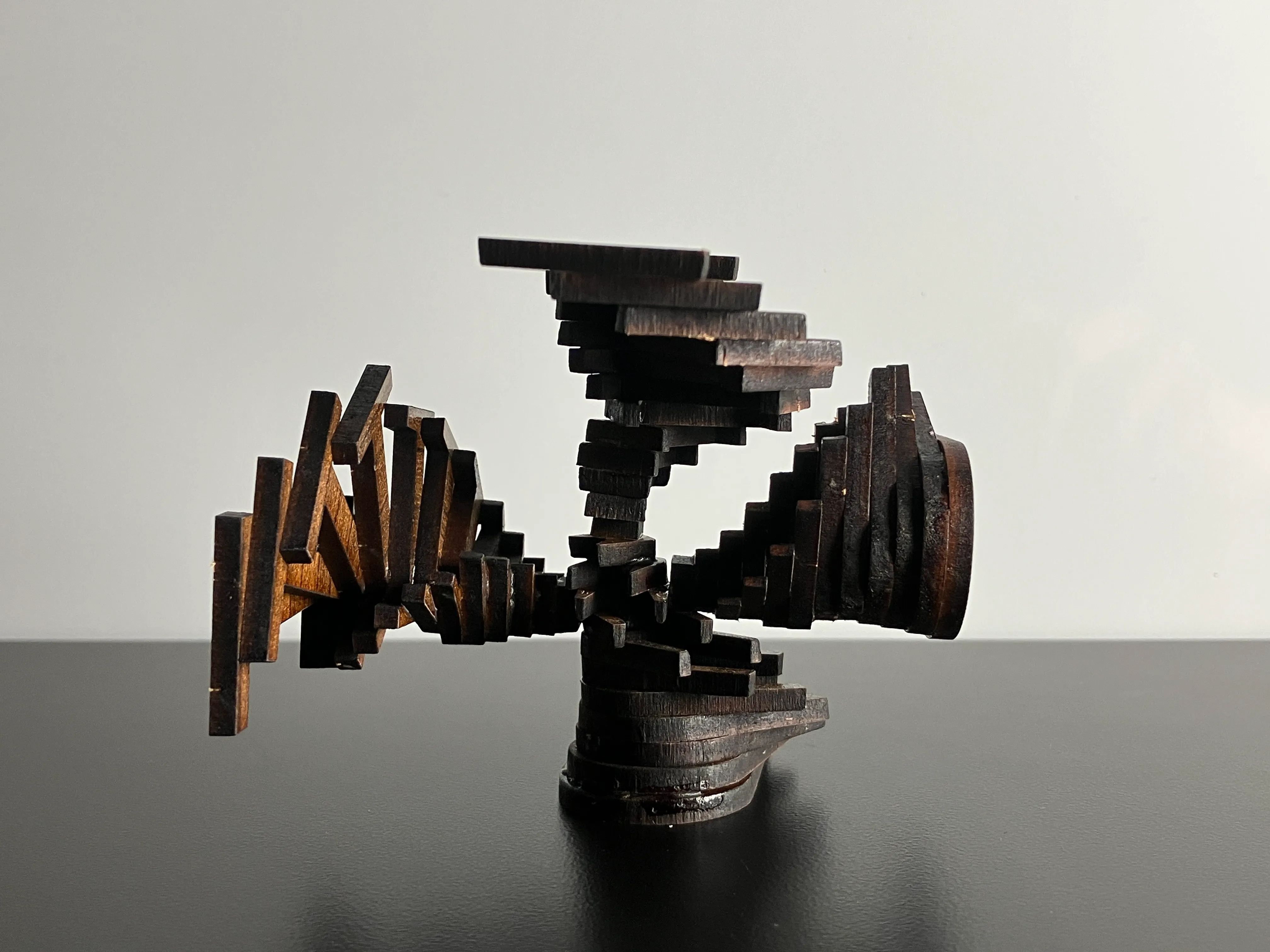
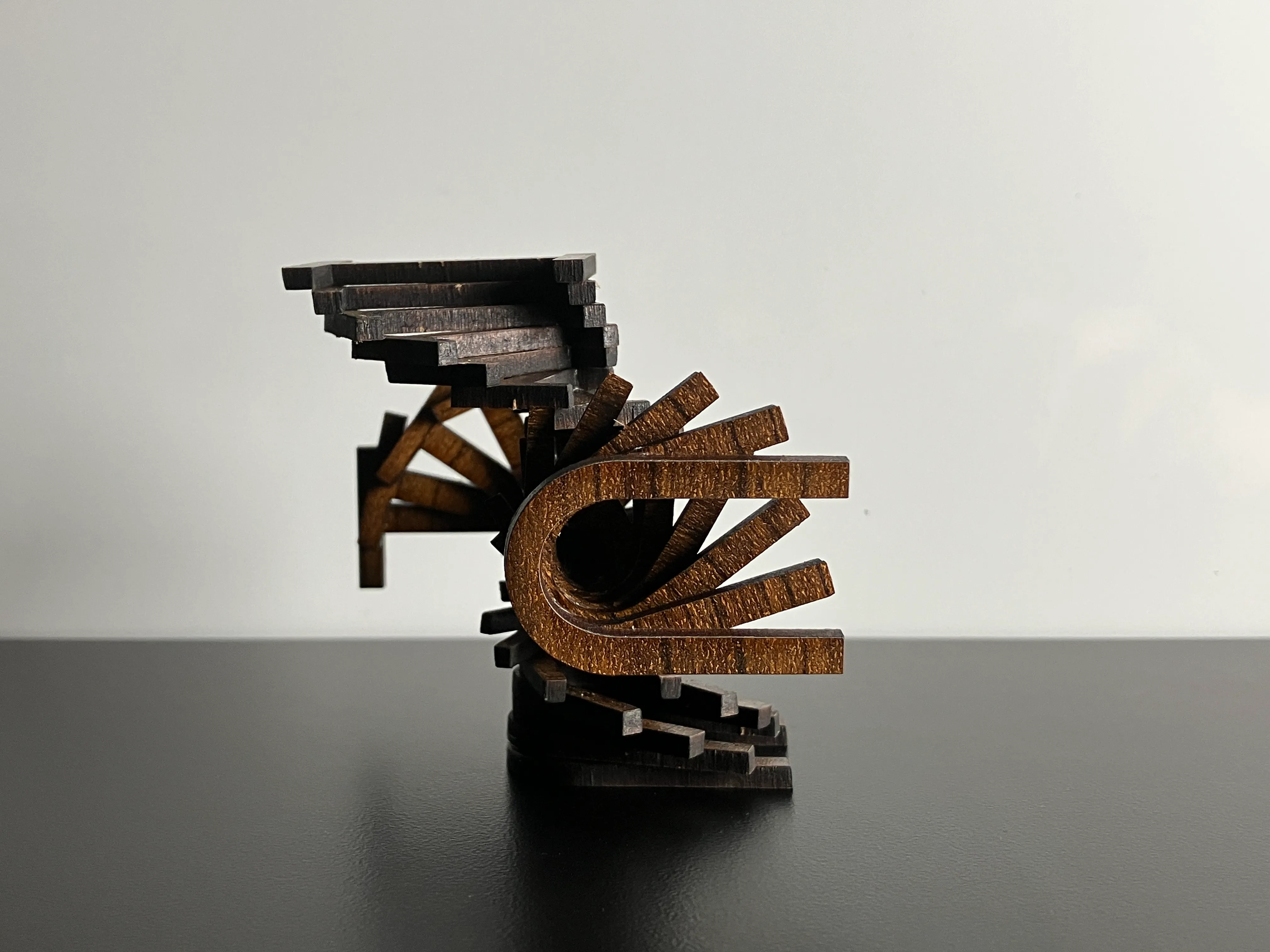
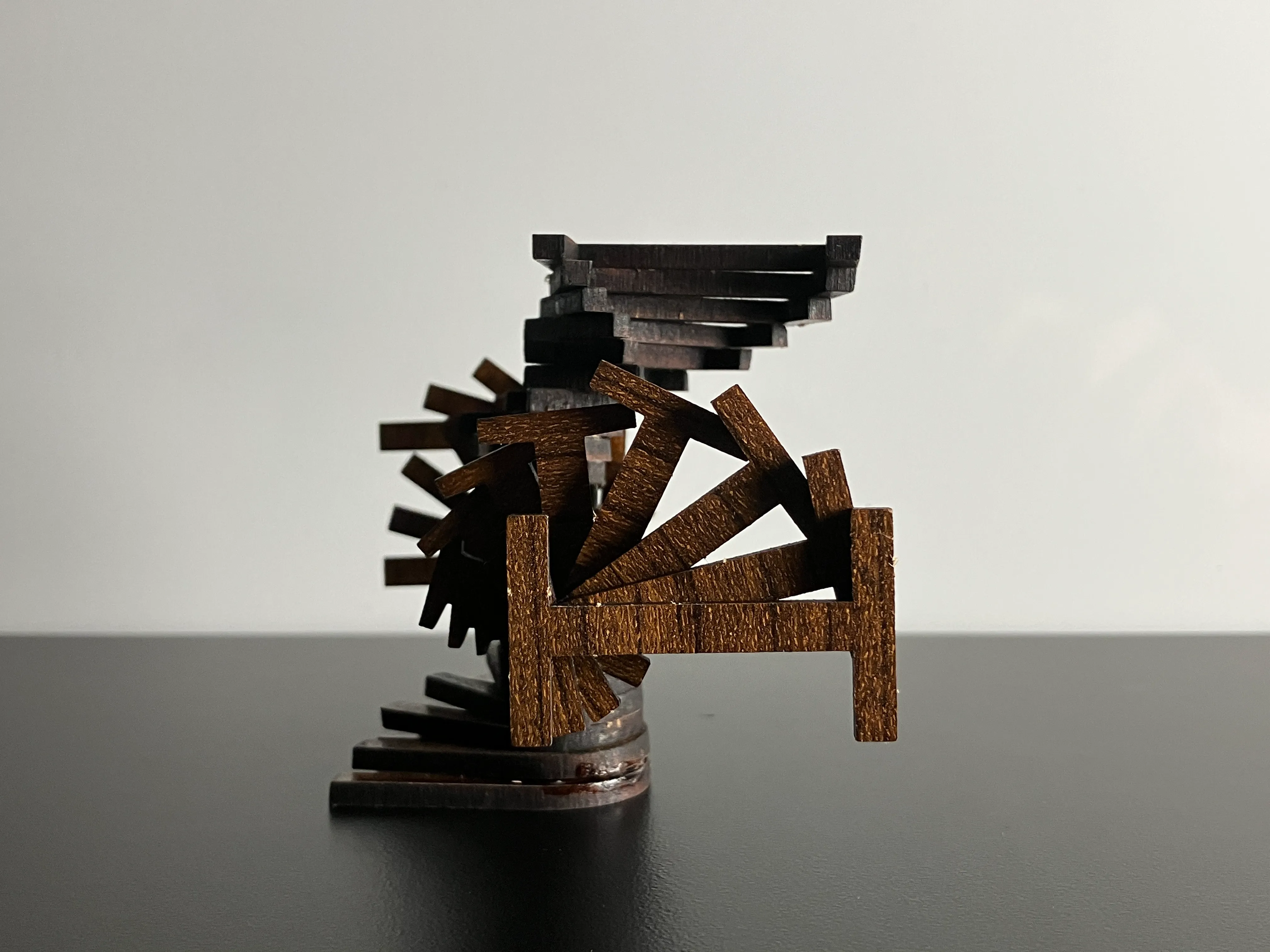
the moment i saw ‘laser-cut’, i thought precision. nothing is more precise to me than typography. so, my first thought was to make something with letters — i wanted to morph words into each other.
i then began playing around. it was obvious that a word, unless its text-width is the same, cannot morph into the other. so, i stuck to letters — and used a monospaced font (to guarantee the same width(s)).

some monospaced fonts (owing to their construction) are not technically the same height. so, i resolved these.
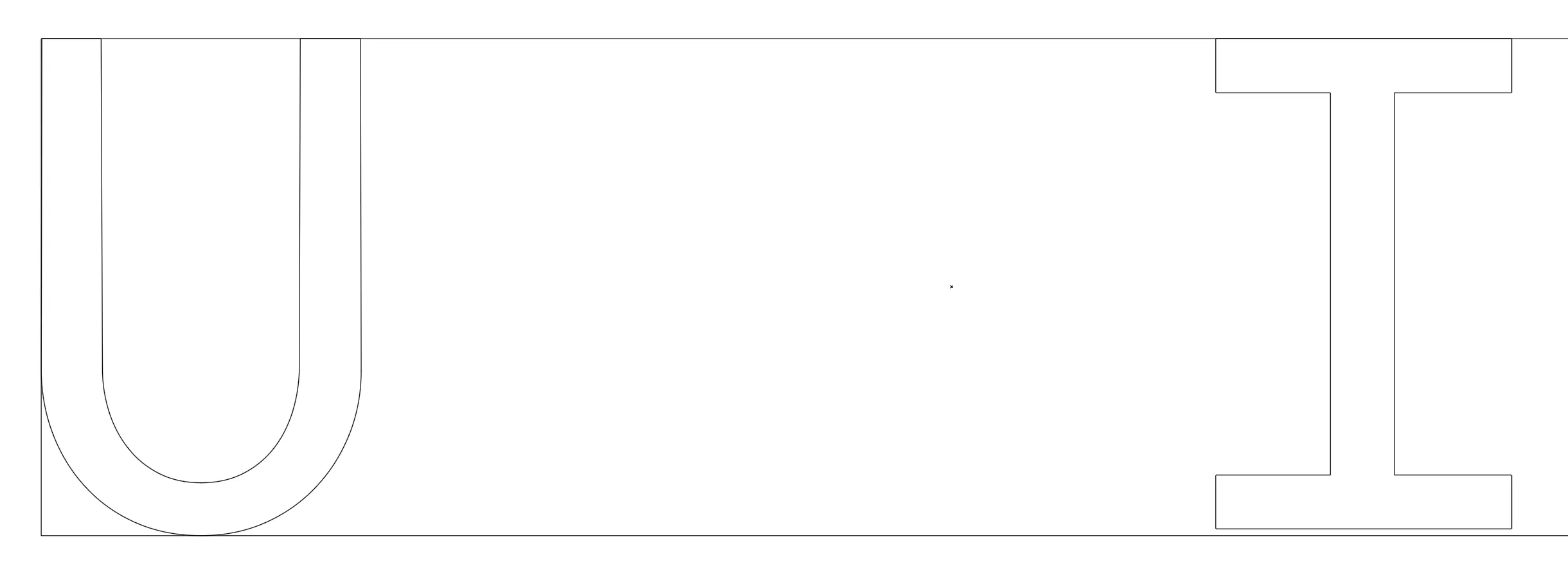
i then morphed ‘u’ & ‘i’ into each other, with a point of origin (square) in between. the idea was to communicate that you & i will always meet, even if we’re on the opposite sides of the world.
laser-cut.
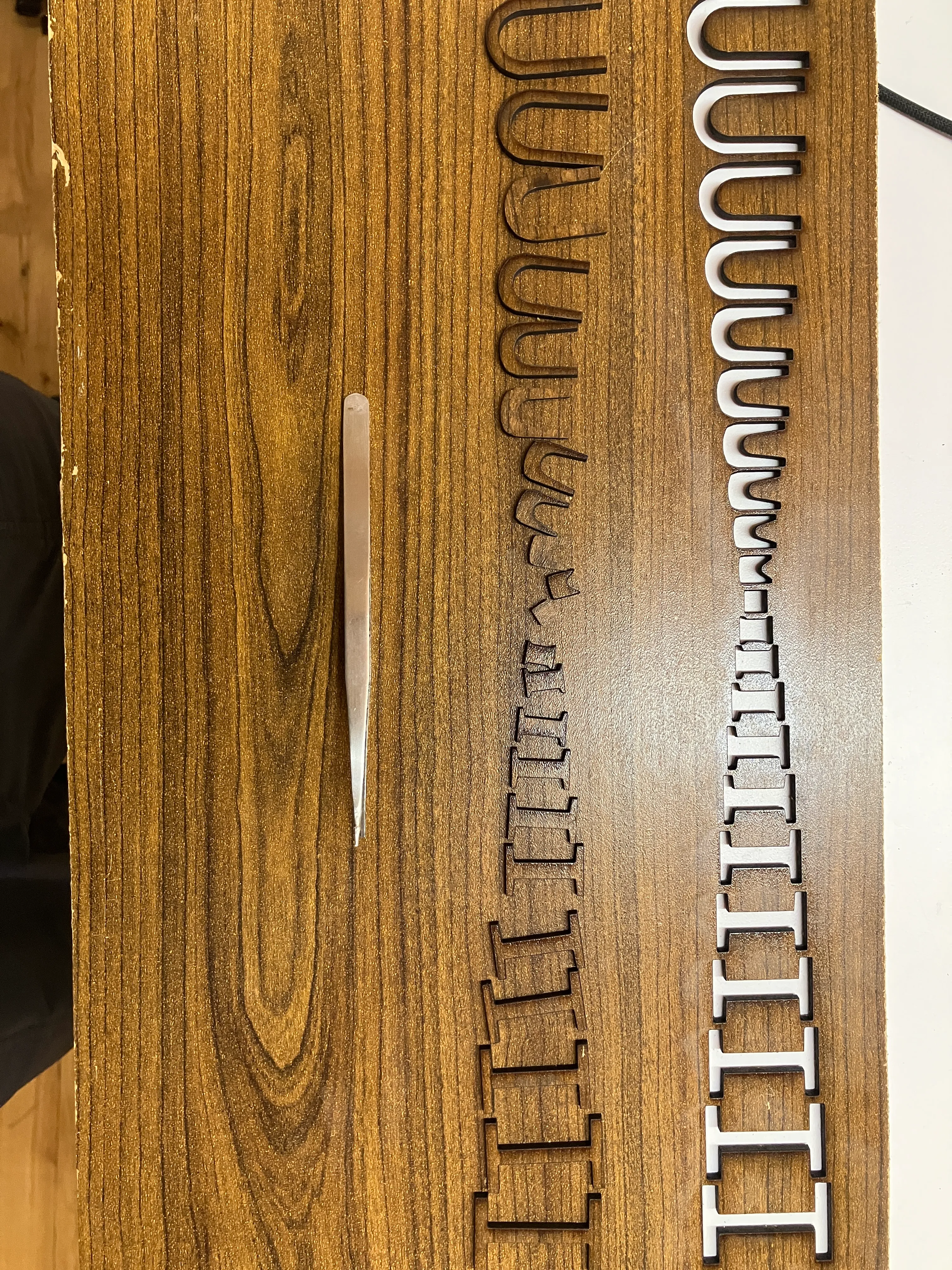
had to cut these multiple times, perhaps because of the coating on the piece of plywood i found.
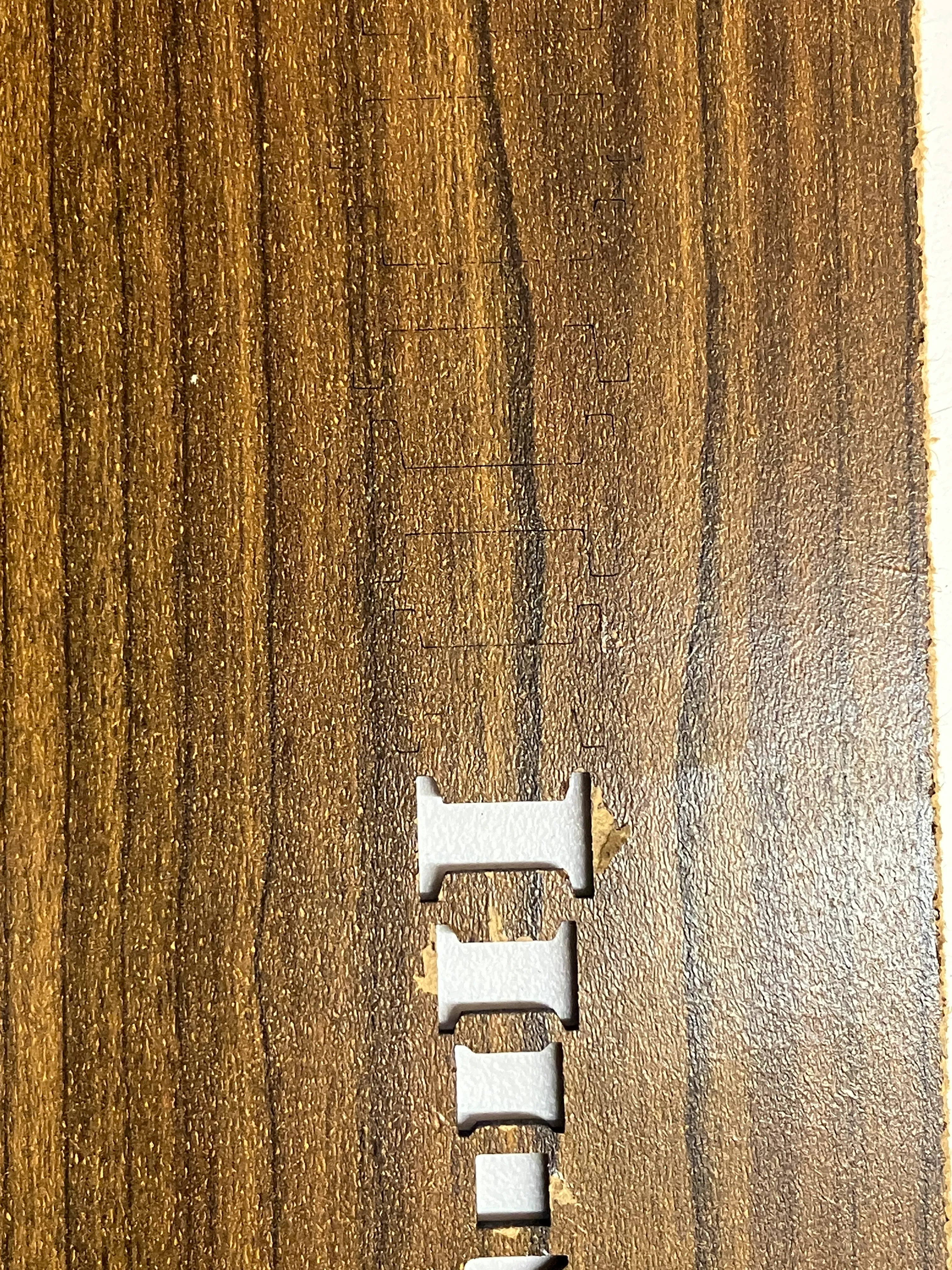
then, i began gluing them together. the pieces were tiny, and no glue on the floor was keeping them together (even hot glue).
![[z_images/IMG_6375.webp]
began supergluing things together.
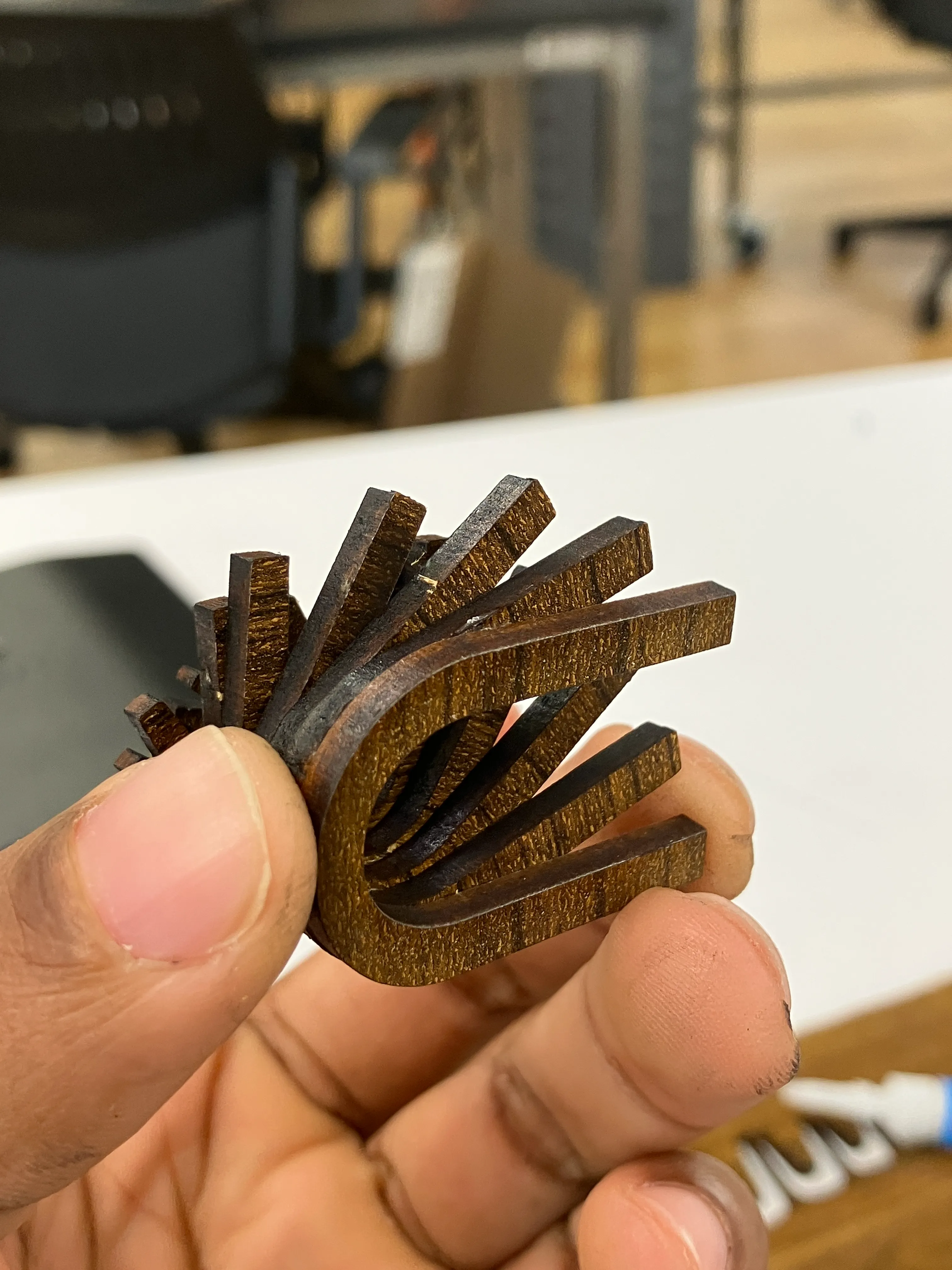
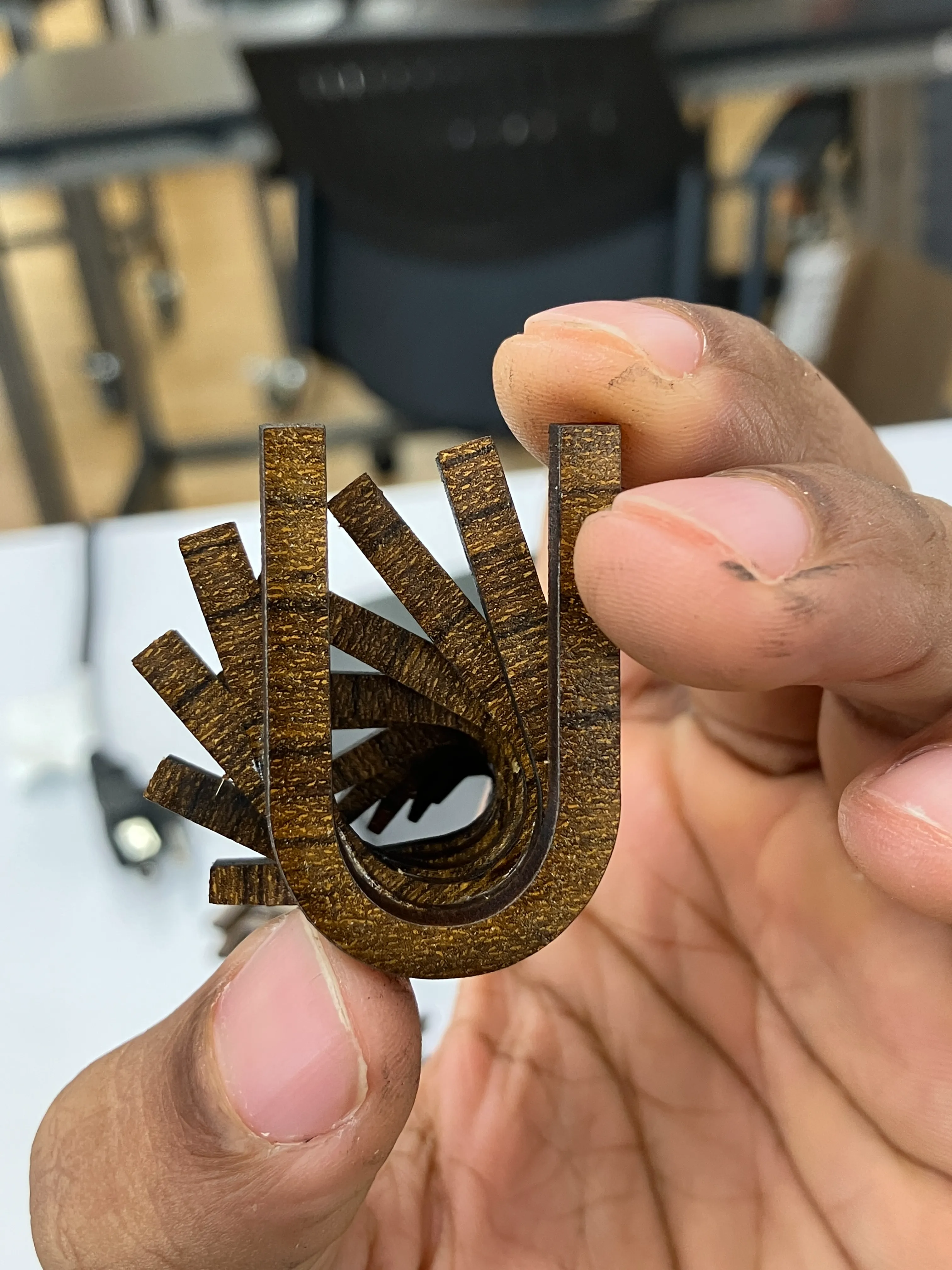
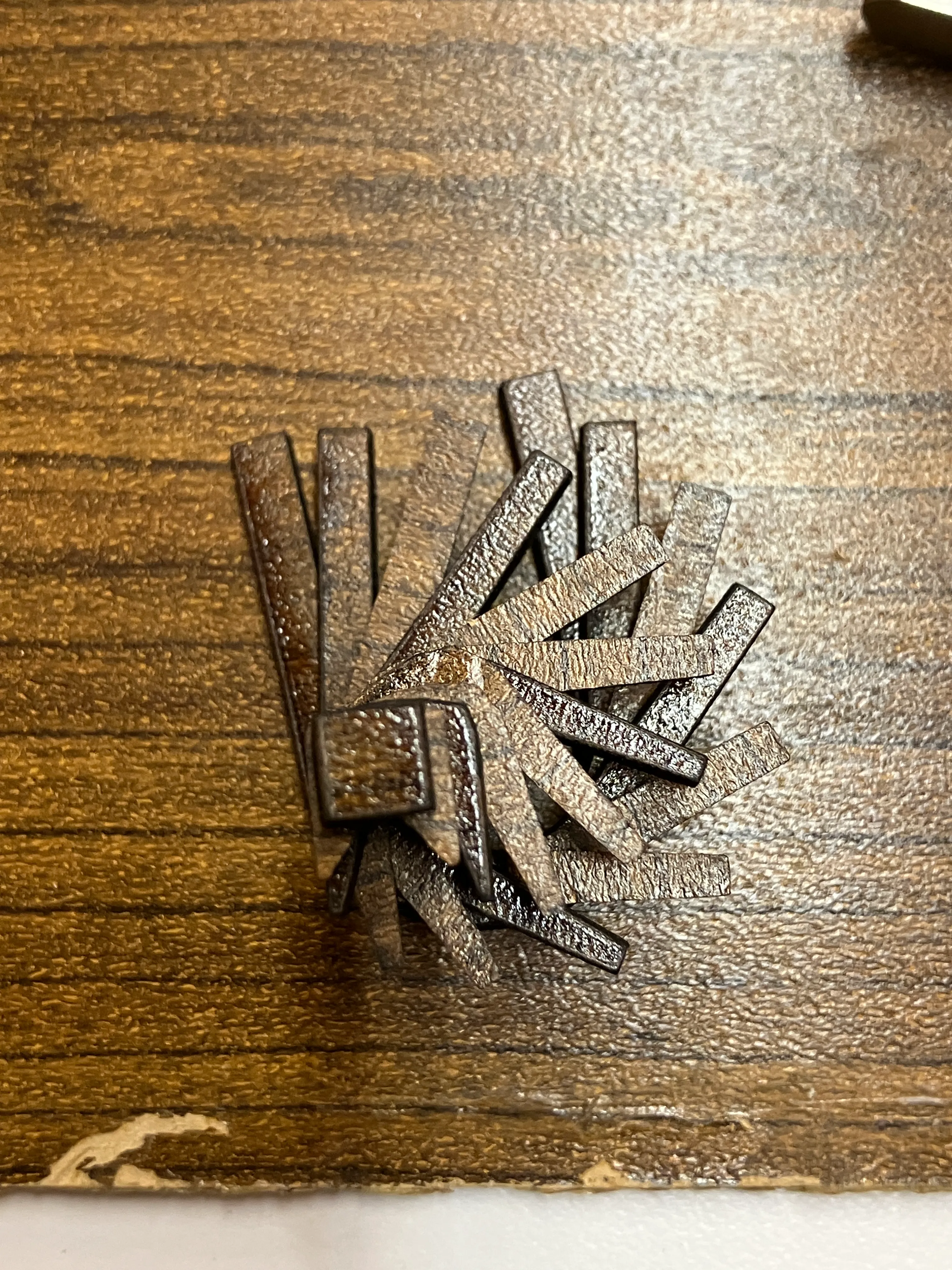
then, i glued it all together.
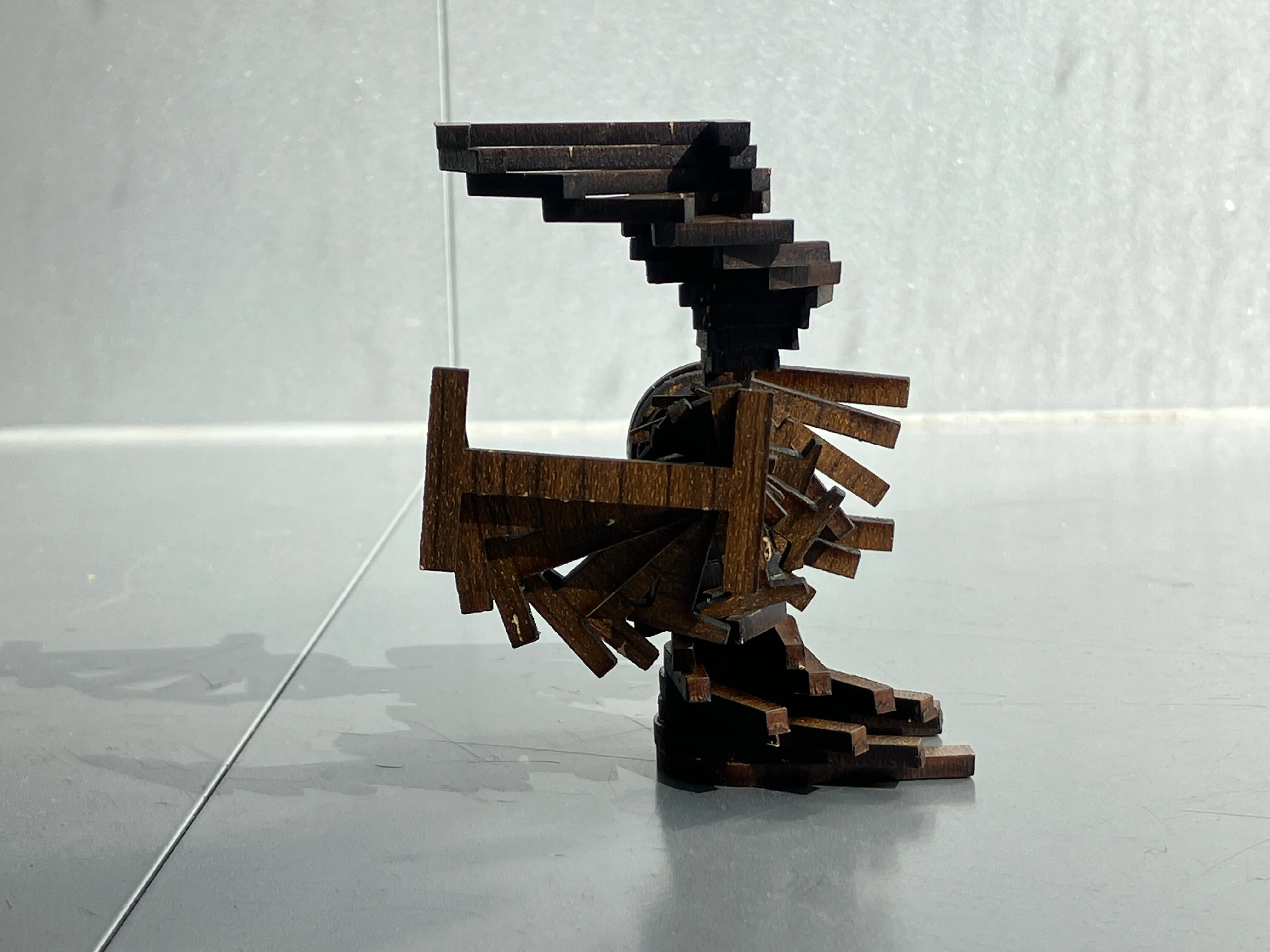
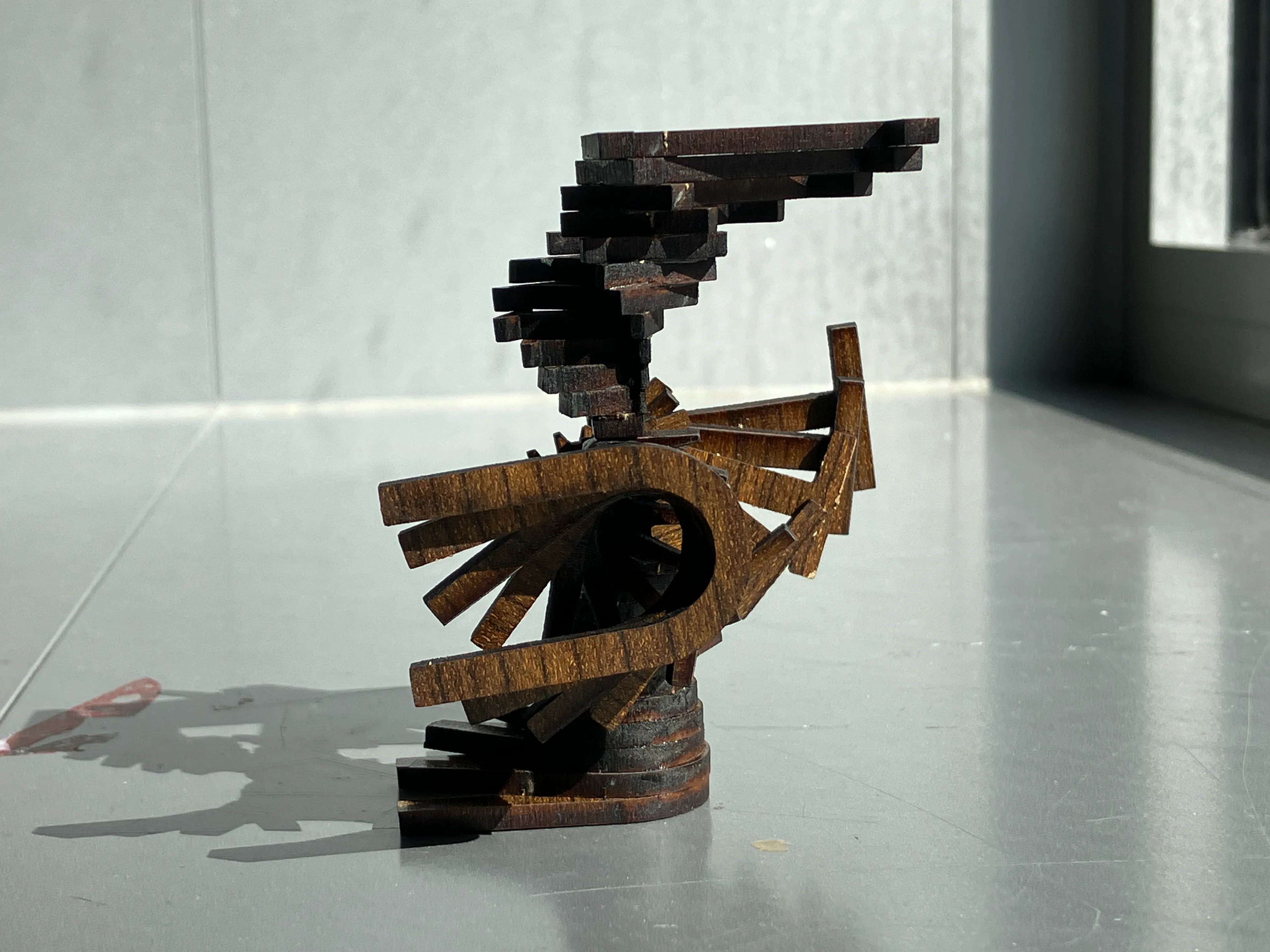
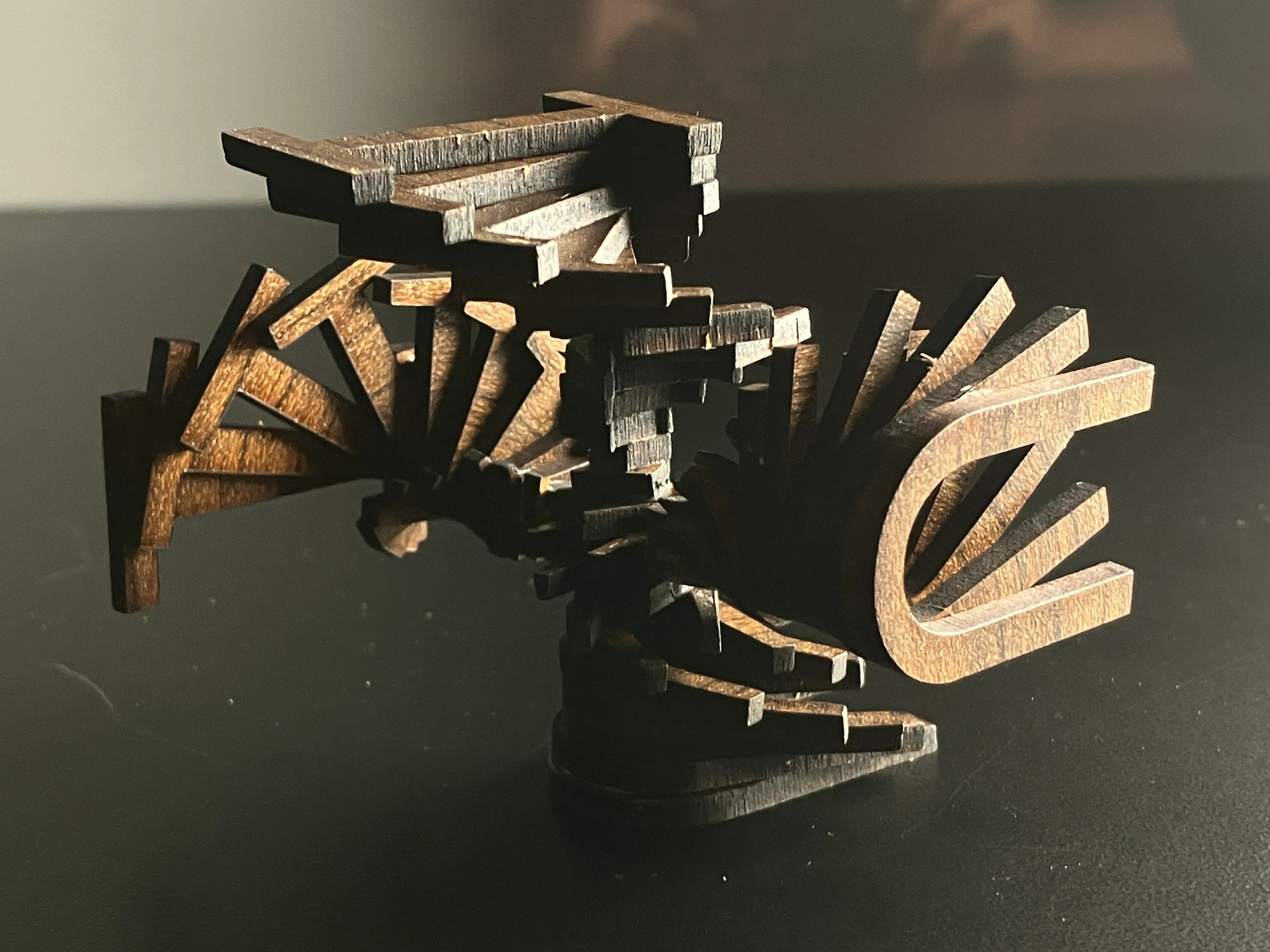
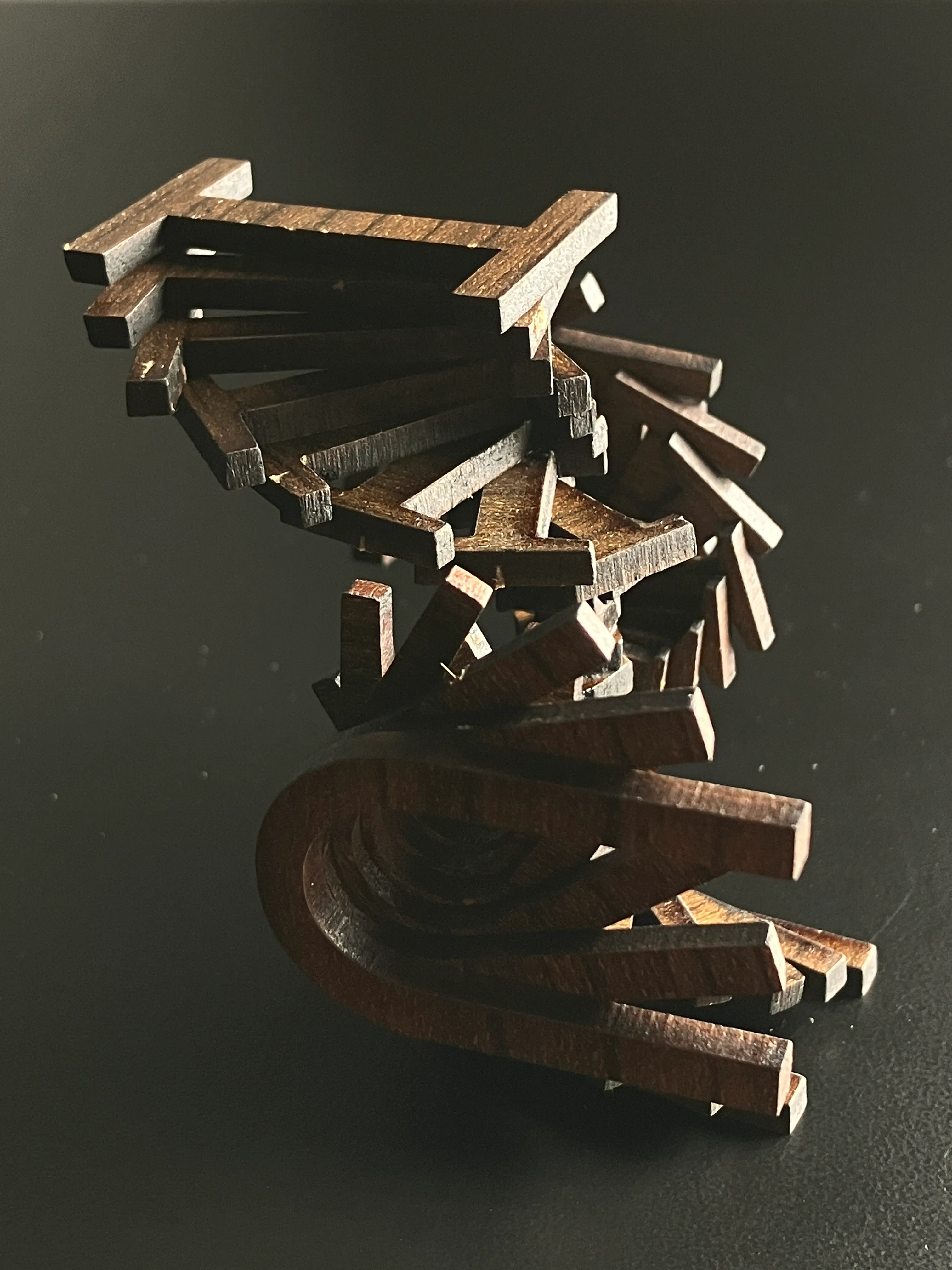
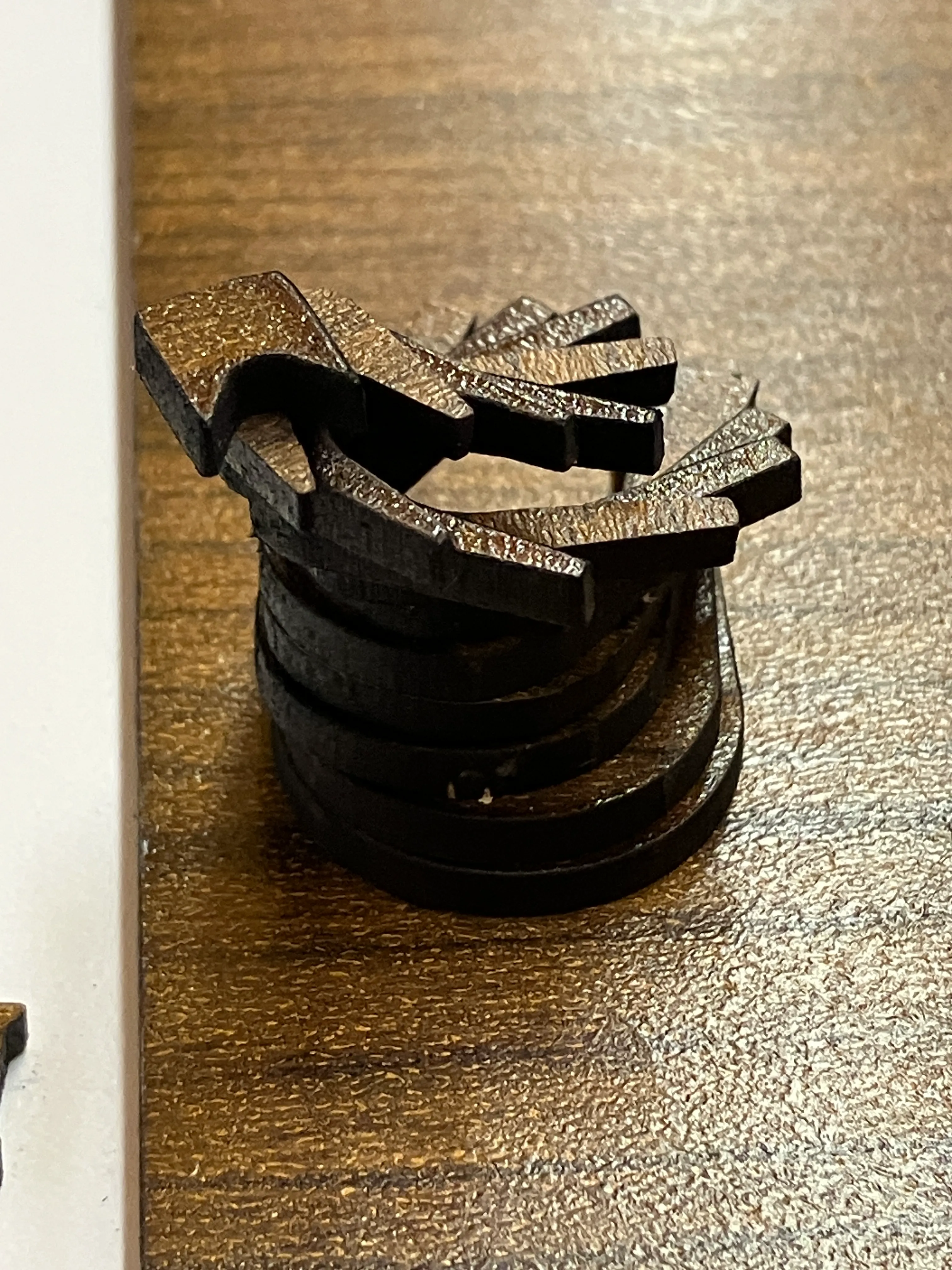
next, i tried things with paper.

i wanted to make something that folds in on itself, but none of these experiments turned out well.
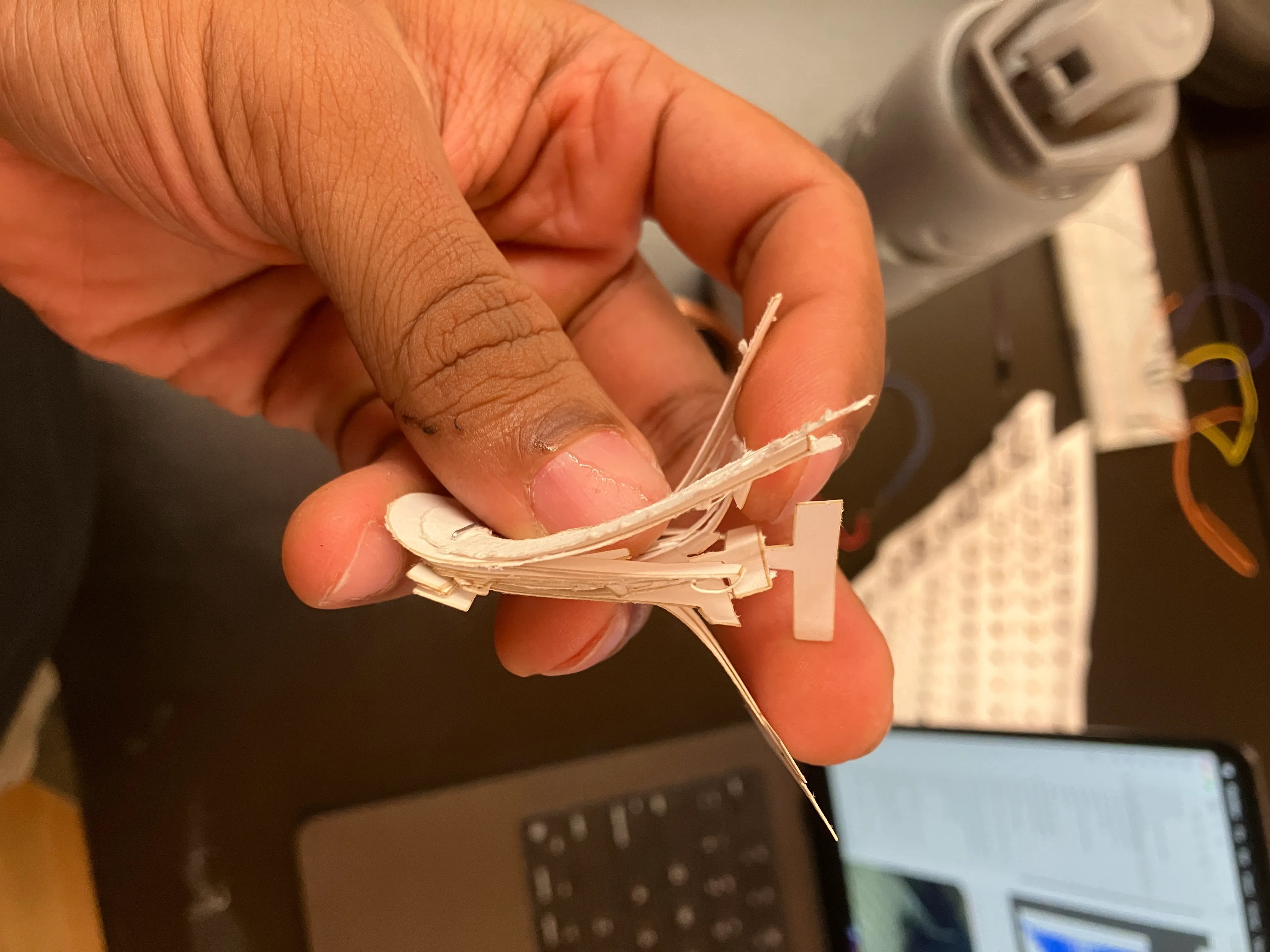
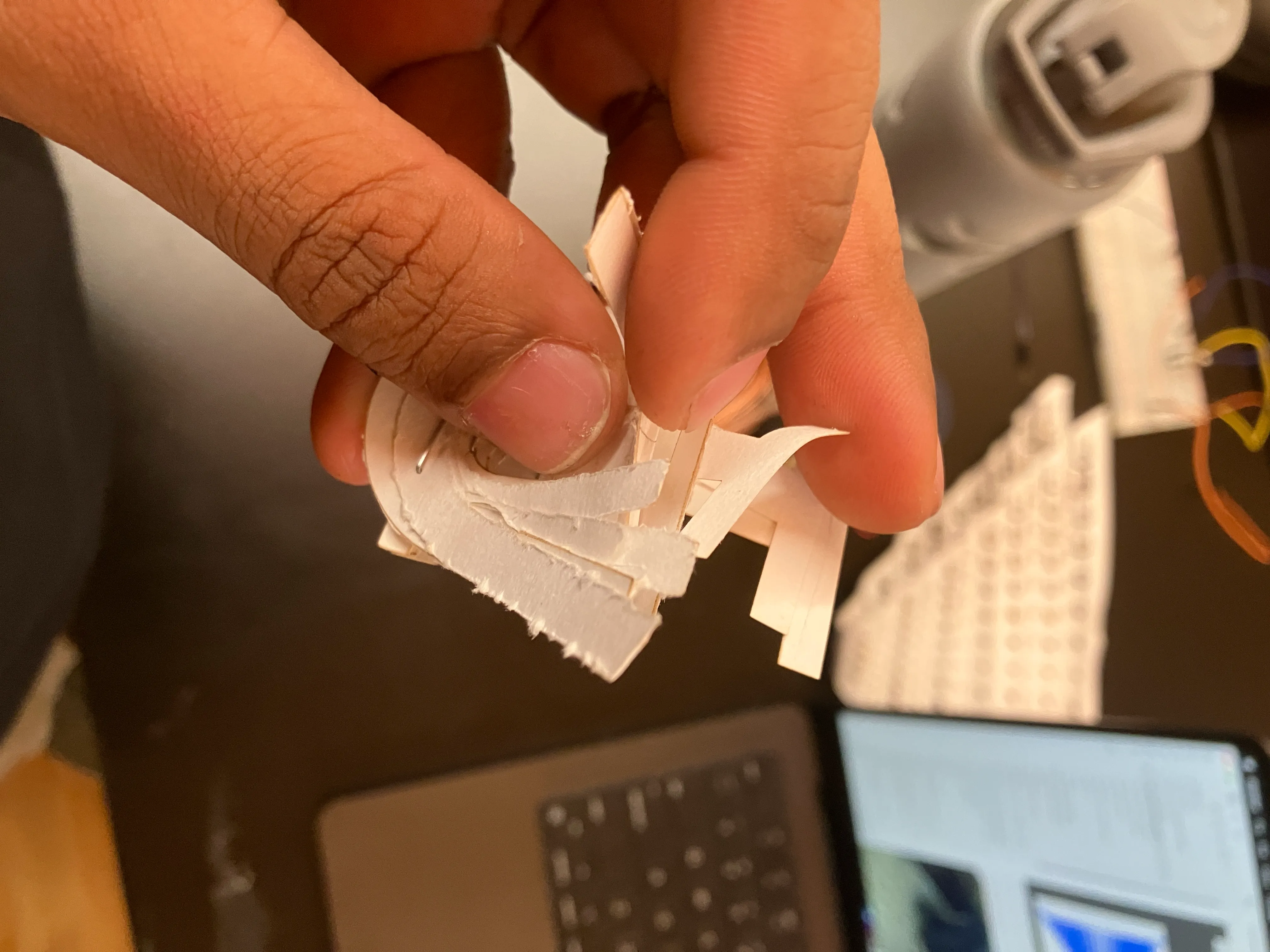
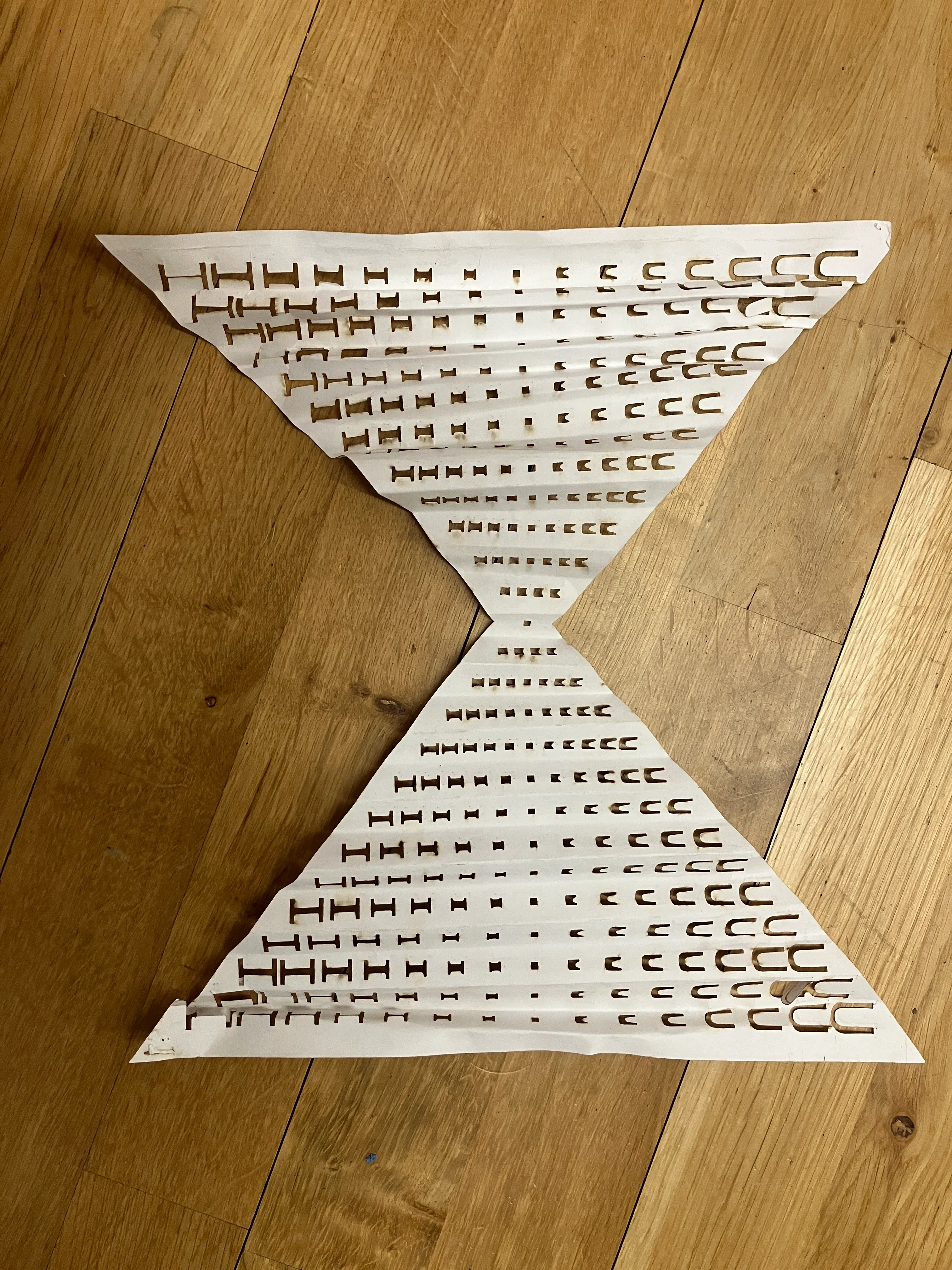
laser-cutting on paper was fun to look at though.
cody taught me that i can tape up paper, to prevent it from moving.
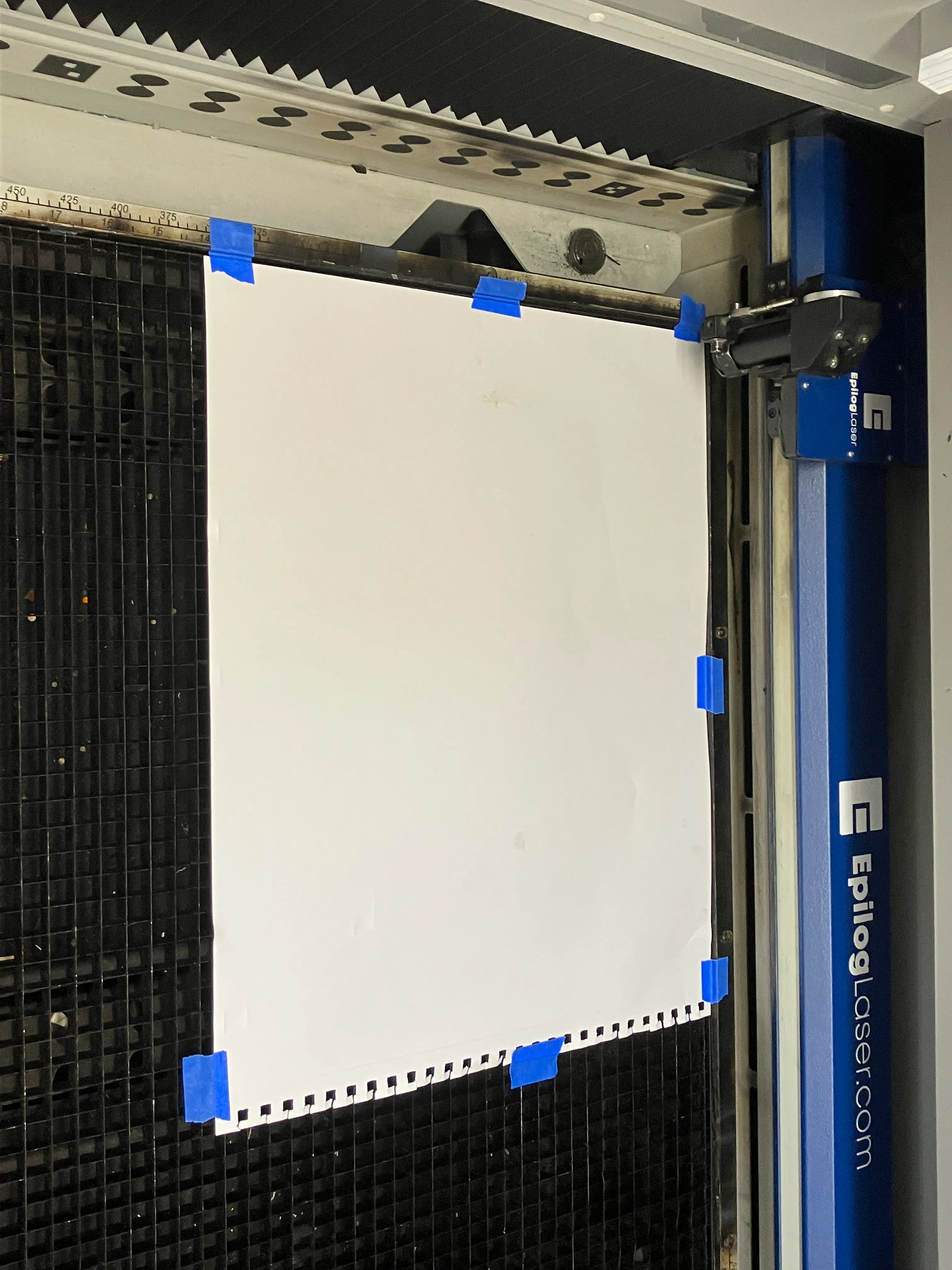
i also realised that most of the settings on the wall are conservative, and when the print is printing, it might be a good idea to manipulate the settings (especially power and frequency (frequency of pulses that the machine sends)).
